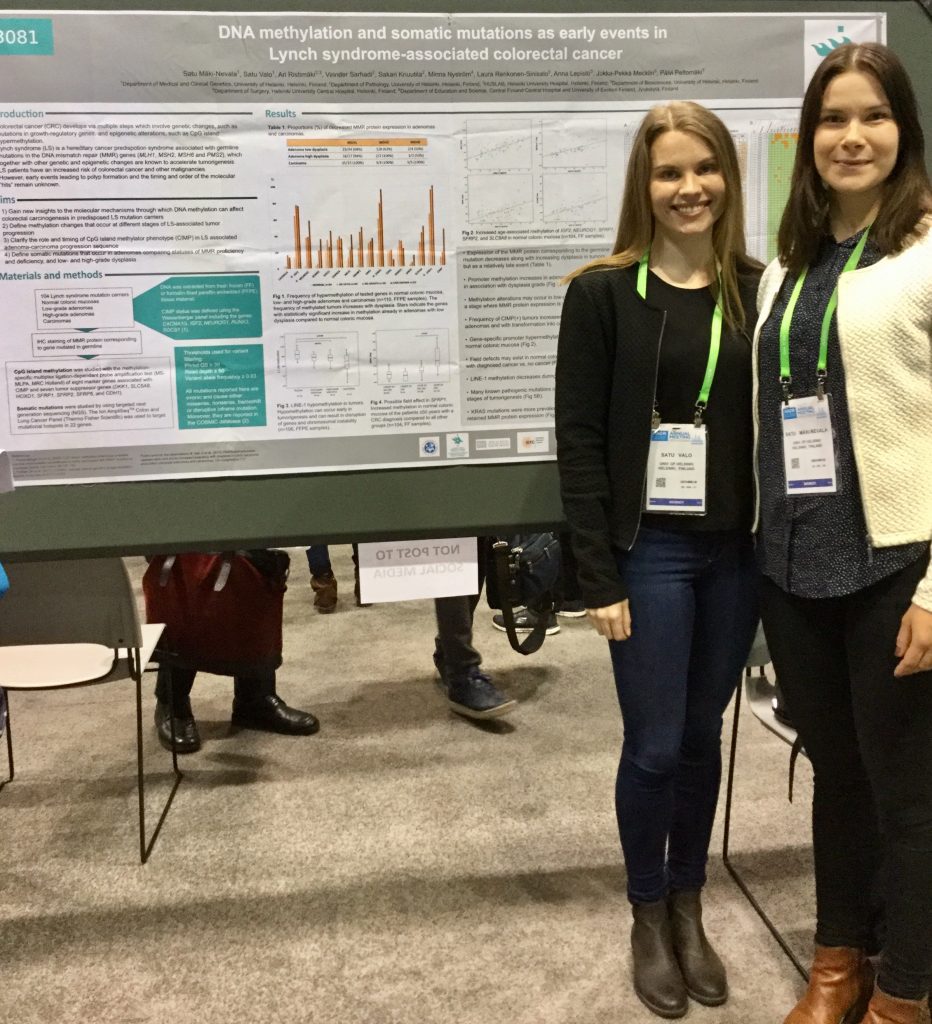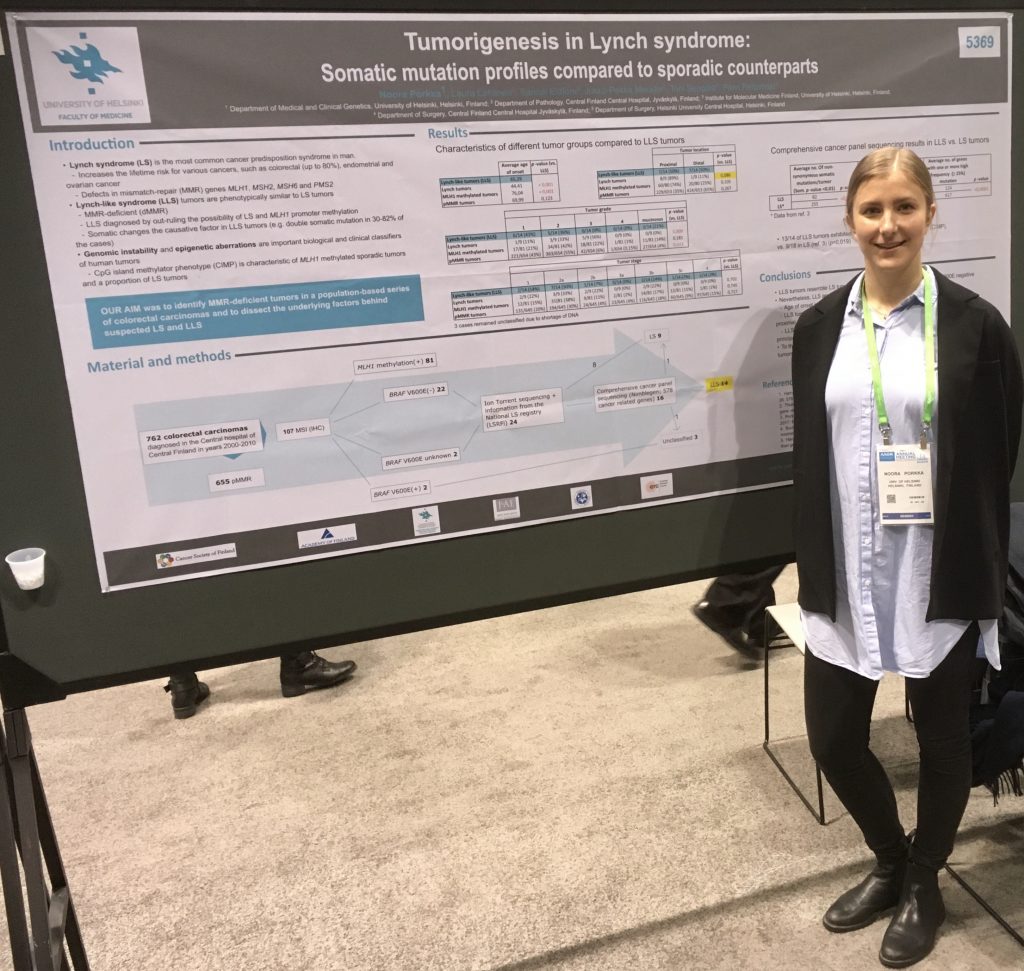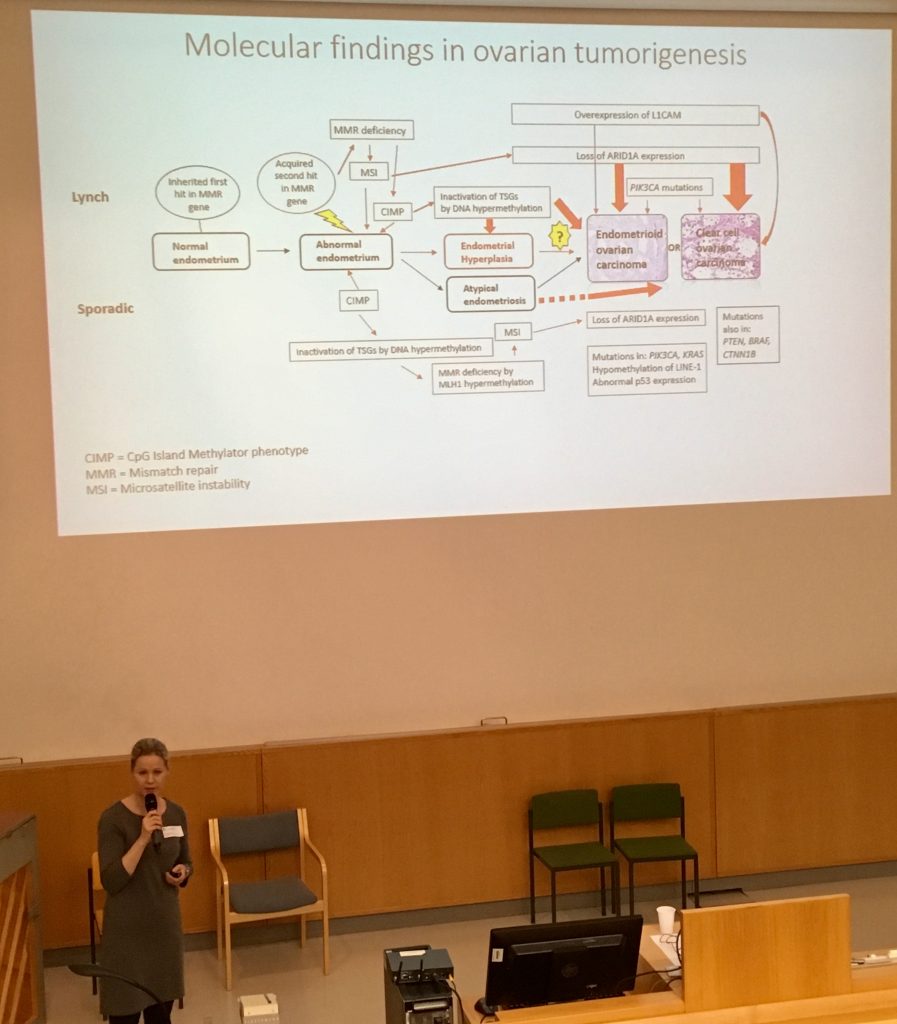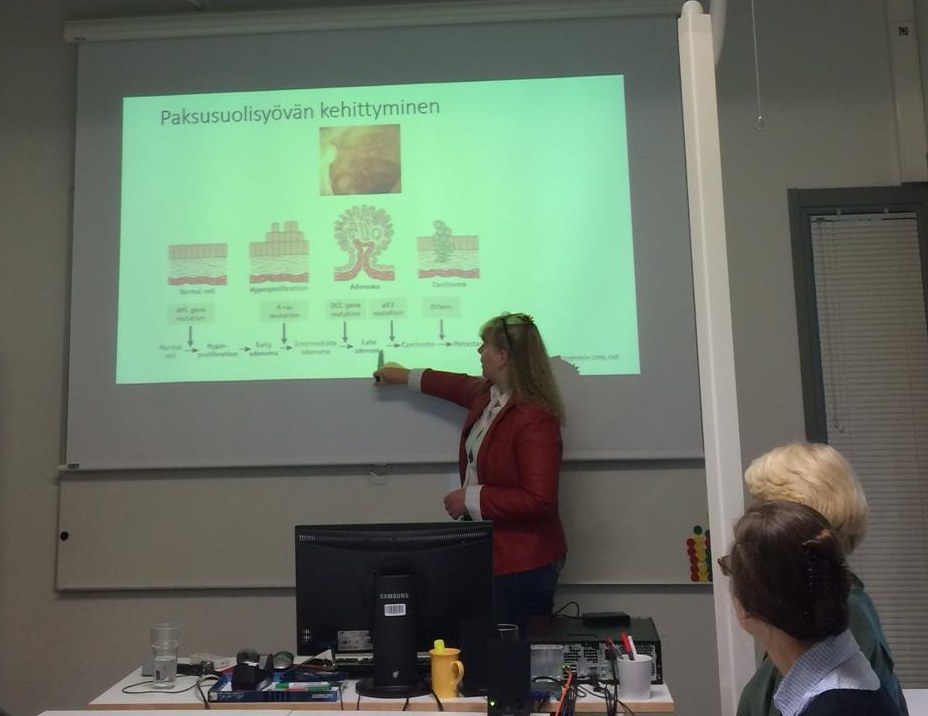Pussila M, Törönen P, Einarsdottir E, Katayama S, Krjutškov K, Holm L, Kere J, Peltomäki P, Mäkinen MJ, Linden J, Nyström M.
Colorectal cancer (CRC) genome is unstable and different types of instabilities, such as chromosomal instability (CIN) and microsatellite instability (MSI) are thought to reflect distinct cancer initiating mechanisms. Although 85% of sporadic CRC reveal CIN, 15% reveal mismatch repair (MMR) malfunction and MSI, the hallmarks of Lynch syndrome with inherited heterozygous germline mutations in MMR genes. Our study was designed to comprehensively follow genome-wide expression changes and their implications during colon tumorigenesis. We conducted a long-term feeding experiment in the mouse to address expression changes arising in histologically normal colonic mucosa as putative cancer preceding events, and the effect of inherited predisposition (Mlh1+/-) and Western-style diet (WD) on those. During the 21-month experiment, carcinomas developed mainly in WD-fed mice and were evenly distributed between genotypes. Unexpectedly, the heterozygote (B6.129-Mlh1tm1Rak) mice did not show MSI in their CRCs. Instead, both wildtype and heterozygote CRC mice showed a distinct mRNA expression profile and shortage of several chromosomal segregation gene-specific transcripts (Mlh1, Bub1, Mis18a, Tpx2, Rad9a, Pms2, Cenpe, Ncapd3, Odf2 and Dclre1b) in their colon mucosa, as well as an increased mitotic activity and abundant numbers of unbalanced/atypical mitoses in tumours. Our genome-wide expression profiling experiment demonstrates that cancer preceding changes are already seen in histologically normal colon mucosa and that decreased expressions of Mlh1 and other chromosomal segregation genes may form a field-defect in mucosa, which trigger MMR-proficient, chromosomally unstable CRC.
Carcinogenesis. 2018 May 28;39(6):788-797.
Pubmed ID:29701748






